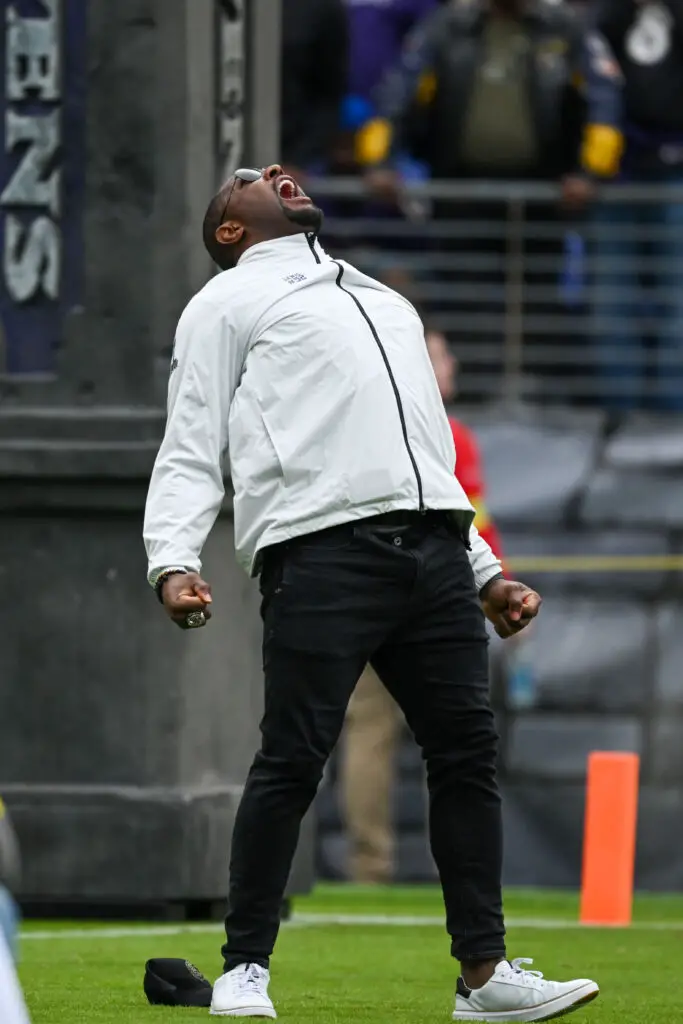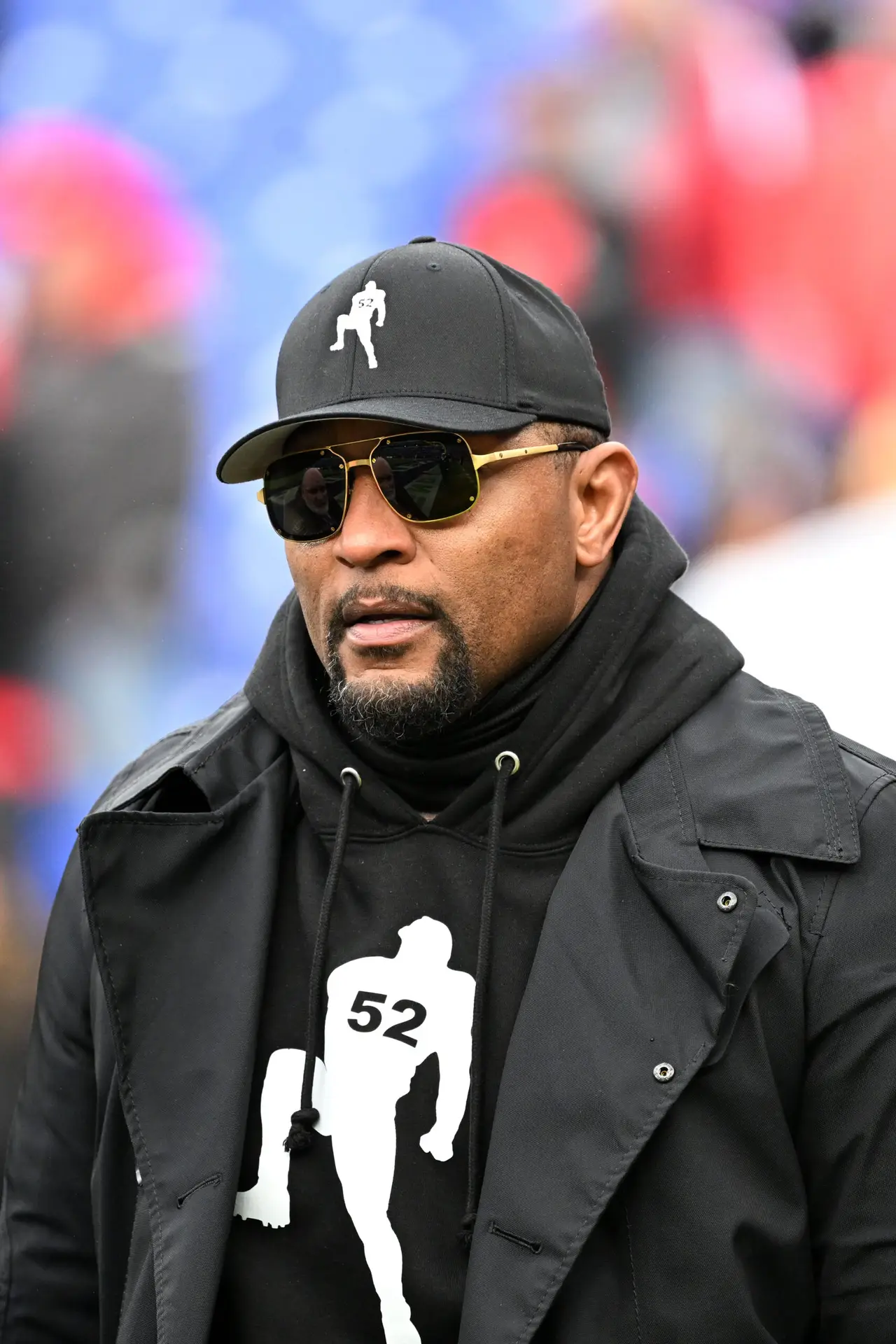The Baltimore Ravens are heading into the 2024 season as one of the top teams in the AFC — and once again — appear to have a roster with enough talent to dethrone Patrick Mahomes and the Kansas City Chiefs.
With the addition of Derrick Henry in the offseason, the Ravens should have a dynamic offense that will constantly keep opponents off guard and they always bring a formidable defense year after year.
In both of the Ravens Super Bowl victories, linebacker Ray Lewis was part of the team.

The Baltimore Ravens easily defeated the Giants in Super Bowl XXXV, 34–7, as Ray Lewis led another dominant performance by the defense and was named most valuable player of the game for his efforts.
The Ravens relied heavily on their defense, which set several NFL records during the 2000 season, including fewest points ever allowed during a 16-game season (165) and fewest rushing yards ever allowed (970). The defense also forced more turnovers than any team in the league that year (49), and Ray Lewis was named NFL Defensive Player of the Year by the Associated Press.

Lewis, the last remaining member of the original Ravens roster from 1996 and the 2000 Super Bowl championship team, announced just after the 2012 regular season finale before the playoffs that he would be retiring after the conclusion of the season. Following three playoff matchups including a thrilling 38–35 double OT victory against the top-seeded Denver Broncos, his final game was a victory in Super Bowl XLVII over the San Francisco 49ers. Lewis is believed by many to be the greatest Raven of all time[ and previously led the Ravens to Super Bowl XXXV in what was just their first playoff appearance in franchise history.
In a sad unexpected tragedy, Lewis suffered a personal loss last summer that shook all of Baltimore Ravens nation. Ray Lewis III, the son of the Hall of Fame Ravens linebacker, died in June 2023 of an accidental overdose.
A lethal mix of fentanyl, cocaine, and methamphetamine in his system, according to autopsy results that were released last year.
In a new report, there appears to be factors directly associated with playing football that led to Lewis’ early death.
Baltimore Ravens Legend Ray Lewis’ Son Had CTE According To New Report

Almost a year after he died of an accidental overdose, the son of the former NFL star with the same name was found to have suffered from CTE, according to a new report from researchers.
The Concussion Legacy Foundation (CLF) verified in a news statement that Lewis III, 28, had Stage 2 CTE. Lewis was identified by Dr. Ann McKee, the director of the Boston University CTE Center, as having the brain ailment frequently linked to football.
According to the Concussion Legacy Foundation, “CTE can only be diagnosed after death,” which is why this information is coming out now. While they did not know it at the time, researchers “suspected he was battling CTE” after learning that years before his death, the former football player was having issues with his memory, “becoming extremely forgetful, and exhibited erratic, sporadic behavior and impulsivity.”
His mother, Tatyanna McCall, suspected he was battling the disease. With his father’s success with the Baltimore Ravens, it’s no surprise the younger Lewis wanted to follow in his father’s footsteps.
“Little did I know when I put my son in tackle football at age 5, I ran the risk of having to bury him 22 years later,” Tatyana McCall, Lewis’ mother, said, per the release. “I would have done something different now, knowing the risks. We need to wait until our babies are at least 14 to allow them to play tackle football. It also breaks my heart that you have to die to get a diagnosis for this disease.”
Chronic traumatic encephalopathy, or CTE, is a neurodegenerative illness that is strongly associated with recurrent head trauma. While a 2019 study by the same group found the odds of developing the disease could increase by up to 30 percent with each year of tackle football played, a 2023 Boston University study found the odds of developing CTE were closely related to the number and strength of hits to the head football players endure throughout their career.
Lewis III played collegiate football at Miami (his father’s alma mater before joining the Baltimore Ravens), Coastal Carolina, and Virginia Union before joining the Wyoming Mustangs, an indoor football team. He is survived by his father, mother, three brothers, and two sisters.


